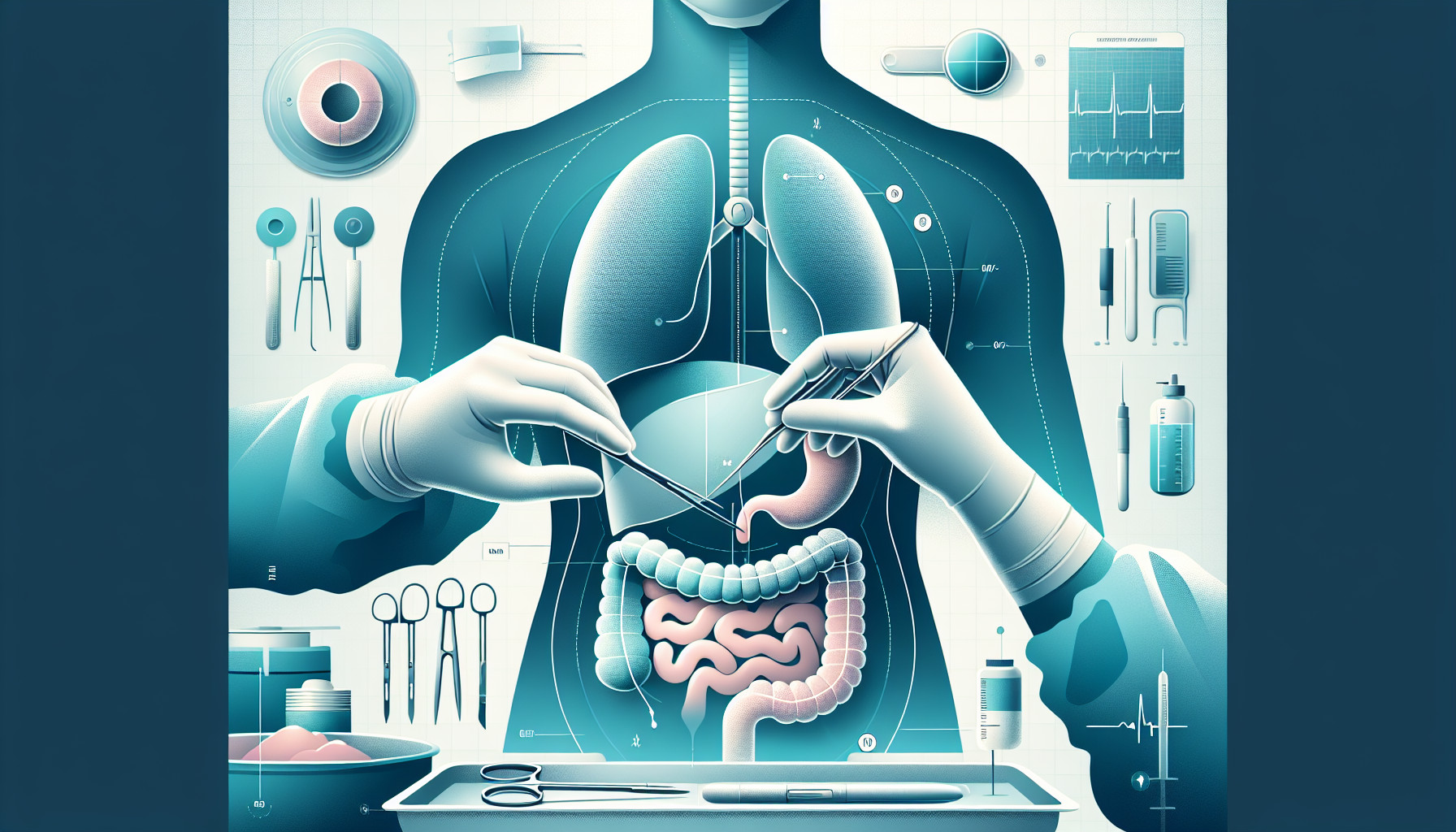Our Summary
This research study examined patients who had surgery to repair a hiatal hernia, which is a condition where part of the stomach pushes through the diaphragm into the chest, often causing heartburn. The researchers found that the condition often returns after surgery, but is not always diagnosed because patients are taking a drug called a proton pump inhibitor (PPI) which can hide the symptoms.
The study involved 64 patients who had the surgery at a Veterans Administration Medical Center between 2007 and 2015. It found that 38 of them had the condition return, and that 70% of all the patients were put back on PPIs after their surgery.
The researchers found that patients were put back on PPIs about 224 days after their surgery, but the returning condition wasn’t diagnosed until about 712.5 days after surgery. The study suggests that using PPIs can delay diagnosing a returning hiatal hernia that could be fixed with surgery, and therefore these drugs should only be used after patients start showing symptoms again and tests have been done to rule out the return of the hernia.
FAQs
- What is a hiatal hernia and what symptoms does it cause?
- What role do proton pump inhibitors (PPIs) play in the treatment and diagnosis of hiatal hernias post-surgery?
- How common is the recurrence of hiatal hernia after surgical repair, according to the study?
Doctor’s Tip
A helpful tip a doctor might give to a patient about hiatal hernia repair is to be aware of the potential for the condition to return after surgery, especially if they are taking PPIs. Patients should pay attention to any symptoms that may indicate the hernia has returned, such as heartburn or difficulty swallowing, and should consult their doctor if they experience these symptoms. It is important for patients to communicate any concerns or changes in their symptoms to their healthcare provider in order to receive appropriate evaluation and treatment.
Suitable For
Patients who are typically recommended hiatal hernia repair are those who have severe symptoms that are not controlled with medication, those who have complications such as bleeding or obstruction, those who have a large hiatal hernia, and those who have a hiatal hernia that is causing significant reflux and damage to the esophagus. It is important to discuss the risks and benefits of surgery with a healthcare provider to determine if it is the best option for each individual patient.
Timeline
- Before hiatal hernia repair:
- Patient experiences symptoms such as heartburn, chest pain, difficulty swallowing, regurgitation, and nausea.
- Patient undergoes diagnostic tests such as endoscopy, barium swallow, and pH monitoring to confirm the presence of a hiatal hernia.
- Patient may be prescribed medication such as proton pump inhibitors (PPIs) to manage symptoms before surgery.
- After hiatal hernia repair:
- Patient undergoes surgery to repair the hiatal hernia, typically a laparoscopic procedure.
- Patient may experience some pain and discomfort after surgery, which is managed with pain medication.
- Patient is discharged from the hospital and advised on post-operative care, including diet and activity restrictions.
- Patient may be prescribed PPIs to prevent acid reflux and aid in healing after surgery.
- Patient follows up with their surgeon for post-operative appointments to monitor recovery and address any concerns.
- If the hiatal hernia returns, patient may experience symptoms again and be put back on PPIs.
- Patient undergoes diagnostic tests to confirm the return of the hernia, and may require additional surgery to repair it.
What to Ask Your Doctor
Some questions a patient should ask their doctor about hiatal hernia repair include:
- What are the risks and benefits of hiatal hernia surgery?
- How long does it typically take to recover from hiatal hernia surgery?
- What symptoms should I watch for that may indicate the hernia has returned?
- When should I contact you if I suspect the hernia has returned?
- How often will I need to follow up with you after the surgery?
- Are there any lifestyle changes I should make to prevent the hernia from returning?
- Are there any alternative treatments to surgery for hiatal hernia?
- Should I continue taking PPIs after the surgery, and if so, for how long?
- How will you monitor me for the return of the hernia after surgery?
- Are there any specific tests or imaging studies that should be done to confirm the return of the hernia?
Reference
Authors: Oppenheimer EE, Schmit B, Sarosi GA Jr, Thomas RM. Journal: J Surg Res. 2020 Dec;256:570-576. doi: 10.1016/j.jss.2020.07.033. Epub 2020 Aug 14. PMID: 32805579
